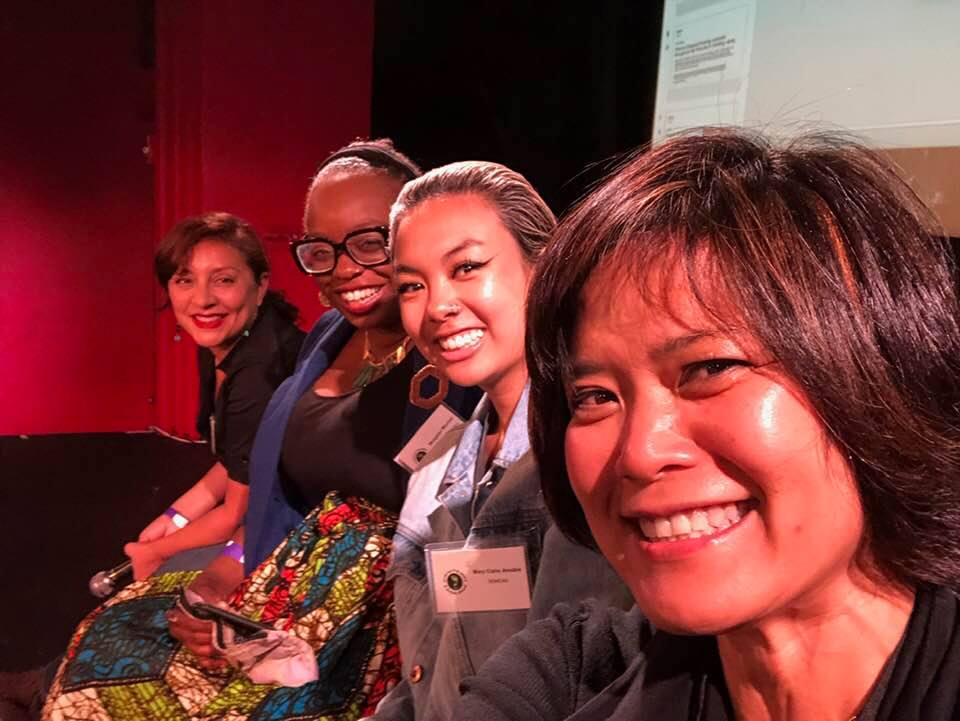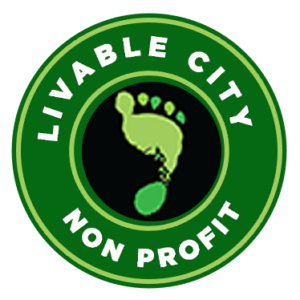
For the first time, Livable City followed the annual Livability Awards ceremony with a free summit exploring the interconnected fields of transportation, mobility and public health. To make it as accessible as possible, the Summit took place during Sunday Streets Valencia, right along the event route – with invites extending to some 20,000 Sunday Streets attendees.
The Summit kicked off with a panel discussion on dreaming big about the future of shared mobility, featuring Planning Commissioner Myrna Melgar, SF Bicycle Coalition Board Member and JUMP’s Meaghan Mitchell, and SOMCAN Transit Justice Organizer Mary Claire Amable.
Moderated by Fay Darmawi of the San Francisco Urban Film Festival, the talk not only explored the intersection between mobility and equity, but centered their own experiences as women traversing their city – whether by foot, bike share or public transit. (When Mitchell mentioned she may have gotten lipstick on the microphone, it seemed an apt theme – or hashtag – for the day).
Melgar urged bike share to include cargo bikes for people who need to carry groceries, which would provide access to more working families. Mitchell talked about lack of safety at night when public transit slows down, as well as her experiences being racially profiled and unable to catch a cab, especially to the Bayview, where she grew up.
Asked “What does equity-first shared mobility look like?” the panelists emphasized the need for a community-led approach, saying city agencies needed to do better with outreach and go beyond hosting a community meeting or asking residents to put stickers on a board at an open house. Instead, meet people where they already are – like in front of the Foodsco supermarket in the Bayview, as a recent SFMTA planner did.
Amable, who found her work as a transit justice organizer through SOMCAN’s youth organizing program, also called for a process inclusive of youth, who are often left out of the conversation.
Lightning talks from the 2019 Livability Awardees followed, with SF Rec and Park’s In Chan Kaajal Community Garden, winner of the Greening the City award, presented earlier by Supervisor Hillary Ronen, discussing the creation of the city’s first new park in ten years at 17th and Folsom Streets, which also includes an edible community garden. In keeping with the theme, they awarded two winners of SF Rec and Park’s pollinator costume contest, taking place in front of the Chapel at Sunday Streets.
People Protected Bike Lanes spoke about their fight to keep and create safe, accessible bike lanes free from car traffic and received [the Sustainable Transportation award, presented earlier by Supervisor Matt Haney
Mission Housing accepted the Complete Neighborhoods — Housing for All award from Supervisor Rafael Mandelman for their 18th Street ADU Garage Conversion Project, which is modeling a way to create new, rent-controlled housing out of dormant garage space that is accessible to seniors, people with disabilities and low-income residents.
Dr Susan Zieff and SFMTA Vice Chair Gwyenth Borden’s Keynote conversation, At the Intersection of Transit and Public Health, explored how the quality of our city streets affect the way people travel and use transit. Streets where people feel unsafe or vulnerable, whether due to crime, car traffic or uneven sidewalks, erode street life and discourage use of public transportation. Creating quality public transit and encouraging active transportation (like walking or biking) means looking deeply at the streets people have to use to catch that bus or get on their bike.
“The perception of our city shifts when we get people moving on the streets,” Zieff said, noting that Sunday Streets helps people reimagine their streets as walkable places, especially in a compact city like San Francisco.
Borden noted how adding red lanes or bike lanes sometimes faced opposition from neighborhood groups, echoing the first panelists’ conclusion that community outreach must be centered in order to improve the greater transportation system. Engaging residents to guide the planning process means the biggest stakeholders – who will be most directly affected by changes to their communities – have a say and that policies are created with their lived experiences in mind.
This first-ever Livability Summit was a great success, with attendees cheering at the end for another summit next year. Livable City and Sunday Streets are excited to continue to bring more public talks to the streets – and the people who walk, roll and bike down them every day.



